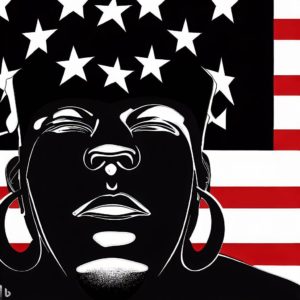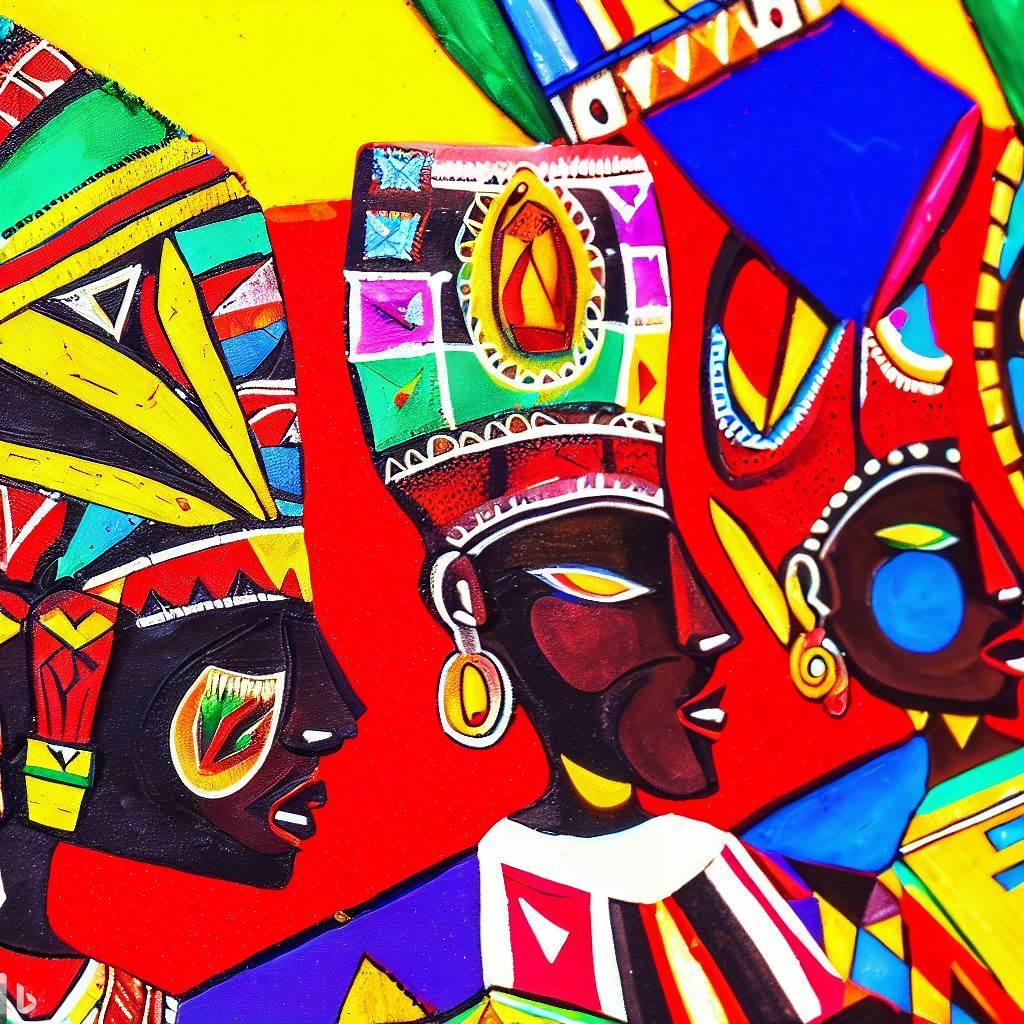Art has long been a powerful tool in shaping society and driving social change, with black artists playing an essential role throughout history. From stirring musical performances to thought-provoking visuals, these creatives have used their talents to challenge norms, raise awareness about racial inequities, and inspire generations of activists.
Today, the influence of African American artists continues to grow as technology amplifies their voices and reaches across the globe. Yet challenges persist in achieving equal representation and support within the artistic community.
_______________________________________________________________________
Key Takeaways
- Black artists have historically and continue to use their artistic expression as a tool for social change, utilizing various forms of art to spark conversation and advocate for marginalized communities.
- The lack of diversity within the art industry can create barriers for black artists seeking recognition, but amplification through technology and social media has enabled greater visibility and opportunities for representation.
- Advocating for political and social change through art can come with risks and challenges regarding censorship, financial support, and backlash from opposition; recognizing the importance of diverse voices is crucial in promoting cultural progression.
_______________________________________________________________________

The Impact Of Art In Driving Social Change
Art has the power to shape society and public opinion, including its impact on social justice movements; people of color have played a significant role in contributing to the arts and promoting social change.
The Role Of Art In Shaping Society And Public Opinion
The power of art to shape society and public opinion is both immense and transformative. As a means of creative expression, it allows artists to showcase their talents and provide commentary on social, political, and cultural issues that affect the world around them.
Throughout history, various forms of artistic expression have resonated with audiences by pushing boundaries or illuminating critical perspectives on pressing societal matters.
Take, for example Picasso’s 1937 painting “Guernica”, which served as a powerful anti-war statement amidst the atrocities committed during Spanish Civil War. Similarly, Keith Haring’s graffiti-inspired murals in New York City during the 1980s brought attention to issues such as LGBTQ rights and drug addiction.
The Contributions Of People Of Color To The Arts And Their Impact On Social Justice Movements
People of color have significantly contributed to the arts, using their platforms to advocate for social justice and drive change. From photography to literature, music to film-making, artists of color have pushed boundaries and sparked important conversations about race, inequality and representation.
For instance, Langston Hughes’ “I too, sing America” is a powerful testament that celebrates African American culture despite marginalization while filmmakers like Spike Lee’s Do The Right Thing(1989) used visual storytelling to ignite activism and challenge systemic racism in society.
These works shed light on the experiences of marginalized communities and challenged mainstream narratives about race.
The Historical And Contemporary Impact Of Black Artists In Promoting Social Change
The impact of black artists on promoting social change is undeniable, both historically and in contemporary times. From the Harlem Renaissance to the Black Lives Matter movement, African American artists have used their talents to shed light on social issues and advocate for change.
Painters such as Basquiat and Kehinde Wiley have addressed themes of identity, race, and power dynamics through their artwork. Musicians like Nina Simone and Kendrick Lamar have used music as a tool for political commentary while also speaking out against systemic racism in society.

Black Artists Spurring Social Change
Black artists have been using various forms of expression, including music and visual arts, to promote social justice and political action, highlighting the importance of diversity and representation in the industry.
The Use Of Music, Visual Arts, And Other Forms Of Expression By Black Artists To Promote Social Justice And Political Action
Black artists have long used their talent and creativity to promote social justice and political action. Through music, visual arts, literature, dance, and other forms of expression, they have conveyed powerful messages of resistance against inequality and oppression.
For example, Nina Simone’s “Mississippi Goddam” was a protest song against racial violence and injustice in the South during the 1960s civil rights movement.
More recently, Kendrick Lamar’s album “To Pimp a Butterfly” addressed issues like police brutality and racism in America.
The Importance Of Diversity And Representation In The Art Industry
Diversity and representation are essential in the art industry because they allow underrepresented artists to showcase their work and influence cultural narratives.
The lack of diversity in creative industries has been widely documented, with marginalized groups often facing barriers to entry due to institutional biases.
For example, painter Kerry James Marshall’s work explores the exclusion of black figures from traditional Western art history while also celebrating African American culture.
His contributions have influenced other artists’ works and inspired conversations about representation in the art world.
The Influence Of Technology And Social Media In Amplifying Voices
In recent years, advancements in technology and the rise of social media have significantly impacted promoting social change through art. Platforms like Instagram, Twitter, and TikTok provide artists with an unprecedented ability to share their work and amplify their messages to a global audience.
This is especially true for black artists who may not have access to traditional promotion avenues due to systemic barriers. For example, when Childish Gambino released his music video “This Is America” in 2018, it quickly went viral on social media platforms due to its powerful commentary on gun violence and racism in America.
Furthermore, technological advances also allow for more diverse forms of artistic expression beyond what was previously possible. From digital art installations that use augmented reality technology to virtual concerts experienced from living rooms worldwide, new technologies are democratizing access to creative expression while enabling black artists’ voices back into history’s pages.
The Challenges Of Promoting Social Change Through Art
Institutional bias in the art industry can prevent black artists from accessing opportunities to promote social change.
Barriers To Entry And Institutional Bias In The Art Industry
The art industry has long been criticized for lacking diversity and institutional bias, preventing many black artists from gaining the recognition they deserve.
Entry barriers can include high tuition fees to attend prestigious art schools, limited access to resources such as studio space and materials, and a lack of representation in galleries or museums.
These injustices have resulted in an ongoing struggle for black artists seeking recognition for their work. However, despite facing significant obstacles, many continue to push forward using their artistic expression as a tool for education and advocacy.
The Risks And Challenges Of Advocating For Political And Social Change Through Art
Advocating for political and social change through art can be a risky endeavor. Artists who choose to use their work as a platform for change often face criticism, censorship, and backlash from those who oppose their message.
Many artists risk having their work labeled as controversial or inappropriate, which can lead to limited opportunities for exposure and financial support.
Despite these challenges, many black artists continue to use their creative expression as a tool for advocacy and social change. From musicians like Nina Simone and Kendrick Lamar using music as a catalyst for change to visual artists like Kara Walker using provocative imagery in her artwork to spark dialogue around race relations- these individuals have used their artistic influence to bring attention to issues that impact marginalized communities.
The Importance Of Support And Recognition For Black Artists
It’s essential to recognize and support black artists in their efforts to promote social change through their art. Unfortunately, the institutional bias and barriers to entry in the art industry have often made it difficult for many black artists to gain recognition for their work.
By providing black artists with opportunities for representation, financial backing, and networking resources, we can help them better advocate for political action and societal progress through their artistic expression.
Additionally, uplifting black creatives encourages greater visibility of African American culture at large, promoting empathy across diverse communities while empowering those who may feel misrepresented or silenced by mainstream media outlets.
The Potential Of Black Art In Driving Social Change And Progress
Black art has the potential to bridge cultural divides and promote empathy, understanding, and social progress through creative resistance and political commentary.
The Historical And Ongoing Impact Of Black Artists In Promoting Social Justice And Driving Social Change
Black artists have had a crucial role in promoting social justice and driving social change throughout history.
Through their artwork, black artists have tackled issues ranging from racial inequality and police brutality to gender identity and immigration policies. Their work has often reflected marginalized communities’ experiences while also acting as a catalyst for broader conversations about equity, diversity, and inclusion.
The Potential For Art To Bridge Cultural Divides And Promote Empathy And Understanding
Art has a profound ability to bring people together, regardless of their background or beliefs. It can provide a platform for open dialogue and understanding between cultures, especially in today’s world, where divisiveness and polarization are rampant.
Through art, we can explore different perspectives and better appreciate diverse experiences.
Additionally, contemporary black artists continue to use their platform to promote empathy and understanding through creative expression. Beyonce’s visual album “Lemonade” delves into themes such as racial injustice and infidelity with powerful imagery that resonates with audiences across racial lines, while Kendrick Lamar’s music often speaks directly to issues facing his community like police brutality.
The Importance Of Celebrating And Supporting Black Artists In Promoting Social Progress.
Celebrating and supporting black artists in their efforts to promote social progress is crucial. By recognizing and appreciating the contributions of black artists, we can help elevate their voices and messages that call for change.
For example, musicians like Kendrick Lamar and Beyoncé have used their platform to address issues such as police brutality against black people and empowering women of color.
Visual artists like Kara Walker challenge traditional notions of race, power dynamics, and history through her thought-provoking artwork. Supporting these types of works helps create a more inclusive art industry and contributes to positive change in society.
Final Thoughts
Black artists have played a crucial role in promoting social change and advocating for racial justice throughout history. Through the power of artistic expression, they have challenged cultural norms, sparked political action and inspired empathy and understanding.
Despite facing numerous challenges, including institutional bias within the art industry and risks associated with political commentary, black artists continue to pave the way for progressive change through their creativity and dedication to advocacy.
As society continues to evolve towards greater diversity and inclusion, it is important that we celebrate and support black artists in driving social progress forward.
Let’s keep fighting for diversity empowerment together!
